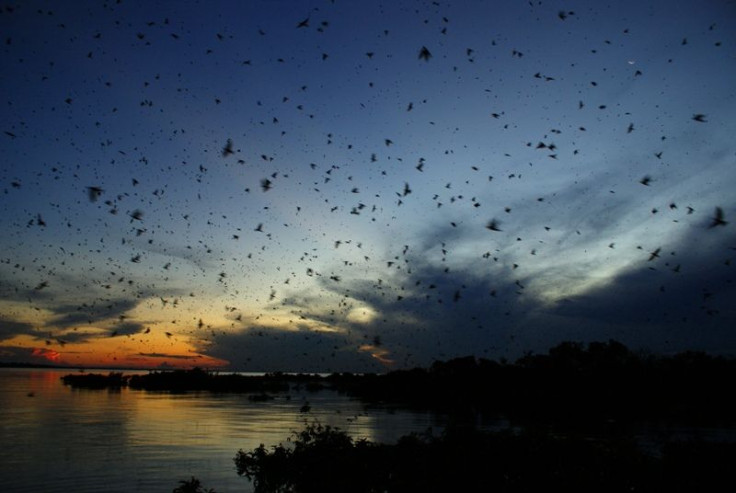
An advocacy group in South America is reporting that a second group of isolated tribal people living in the Amazon have made contact with villagers in Brazil, according to LiveScience. This time around, 24 individuals -- men, women and children who have been kicked out of their native homeland by logging-related violence -- have taken a risk by approaching villagers. These individuals are said to be from the same "uncontacted" tribe that reached out to villagers earlier this year.
Towards the end of June this year, seven tribal members contacted the Ashaninka people in the village of Simpatia, according to advocacy group Survival International, claiming that they were the victims of violent attacks. The risk associated with making such contact with outsiders is their immune system, which is not adept to fighting many common diseases they can come into contact. During their first visit, the first group attempting to make contact displayed flu-like symptoms and as such, were treated and quarantined prior to returning home.
"It is crucial that the Indians who have made contact receive top-quality health care and monitoring there at the FUNAI base, as they have very little immunity to diseases, which could wipe them out," said Sarah Shenker, Survival International's Brazil campaigner, to Live Science via email. "Uncontacted tribes are the most vulnerable peoples on the planet."
"The Brazilian government has requested that the Peruvian government investigate this and protect the land. As far as we know, the Peruvian government has not yet committed to anything," Shenker added. "We do know, however, that this area in Peru is invaded by illegal loggers and cocaine traffickers."
Last year, a group of people from Peru's Mashco-Piro tribe, who are notoriously reclusive and isolated, emerged from the jungles of Peru and made contact with local villagers. This news came as a shock and surprise to the government and local activists, as the tribe has been labeled as "uncontacted people" and have no contact with the outside world. The tribe has hundreds of members and is considered to be one of the most isolated tribes on the planet.
According to local activists, logging and urban development has had a detrimental effect on the tribe's natural habitat. In fact, logging is responsible for reducing the area in which the tribe can live. Perhaps it is due to the changing landscape of Peru, but the members of the tribe made their way to contact villagers to request food which raises questions about whether urban development has reduced their access to food.
Anthropologist Beatriz Huertas reveals that the Mashco-Piro tribe has been spotted making its way through the jungle during the dry season, but they have never come so close to the village.
"It could be they are upset by problems of others taking advantage of resources in their territories and for that reason were demanding objects and food of the population," she said. Estimates suggest there are 12,000 to 15,000 people living in the jungles east of the Andes that are considered to be "uncontacted."
The footage (see below) was filmed by a local rainforest campaign group AIDESEP in late June. According to the director of AIDESEP, Saul Puerta Pena, the government of Peru reportedly forbids people from directly contacting the tribe, as they supposedly do not have immune systems that are strong enough to cope with the germs that the average urbanized Peruvian carries.
"There is a canoe sent by another remote indigenous community, which does not live in isolation, to send them food," he said. "But the tribe cannot come into contact with the remote community still because any illness could kill them."
© 2025 Latin Times. All rights reserved. Do not reproduce without permission.




